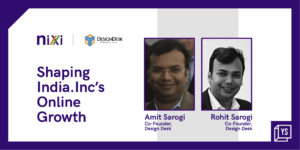Probably every one of you who has a business and a website have been approached through email or personal contact, and asked to spend money on paid search results (appear on the first page of search results, despite low SEO rank). What most people don’t realize is, according to recent statistics, despite top positioning, only a quarter of sites selected comes from paid search.
Thus I recommend that you stick with organic search, and use SEO to raise your ranking. Paid search engine ranking (PPC) is just buying advertising for your business. Their computers then merge your ads with search results when users search words imply an interest in your products. If you sell widgets, and a user is searching for widgets, your ad will appear on the first page.
This is NOT the same as or better than Search Engine Optimization (SEO). SEO is not placing ads, but tuning your website so that it is more highly ranked by Google, and featured in the first page of results, not in an ad beside the results. PPC is sometimes called “buying your way into search results.” Both have the same end goal of getting people to your website.
With PPC, the goal is for the search user to not only see your ad, but to click on it to get to your website (click-through), and buy your widget (conversion to sale). In this context, there are many parameters and concepts you need to understand before you buy advertising:
-
Cost per impression (CPI). This cost model is the most like traditional newspaper and television advertising, where advertisers pay for each ad appearance or page-view (impression) on a search result page, even if the user pays no attention. For Google, this is pay per impression (PPI), or pay per mille (PPM) per thousand impressions.
-
Cost per click (CPC). In this more popular model these days, advertisers do not pay for each appearance of the ad, but only when a user clicks on an ad and is redirected to the advertiser website. For sites displaying the ads, this is called pay per click (PPC).
-
Cost per action (CPA). Another alternative was added a couple of years ago to mitigate the problem of people clicking just to get paid (click fraud). It pays only if a customer clicks through AND takes a further action (conversion), such as buying a product or filling out a web form. The display side is called pay per action (PPA) or pay per lead (PPL).
-
Keyword research and budget forecasting. All these models start with the advertiser choosing the right search keywords to match user searches. Popular keywords have higher costs. PPC experts charge you to research, analyze, and estimate hit ratios, to optimize your success and set a campaign spending budget for you.
-
Campaign setup and ad copy writing. There are many additional variables that the inexperienced marketer may not even think to consider: competition and positioning strategies, budgeting, match types, search and content syndication, and ad copy testing, as well developing the best ad wording and layouts.
-
Tracking and performance reporting. Advertising is all about getting the most results for the least cost. You may be getting great traffic, but poor conversions. Other PPC experts will track your campaign from click to transaction, providing you with detailed reports on and return on investment (ROI).
If you do all these things right as a search results advertiser, you will make money from selling your product. If you do all these things right by displaying other people’s ads on your website or blog, you will make money from advertising – like Google and Facebook, who offer services for free, and still make millions in revenue.
But either way, it requires big numbers to work (traffic), click-through rates are small, and the pay per click is tiny. Until your traffic is in the millions of page-views per month, don’t expect to live off the conversions or other people’s ads. For credibility with investors, stick to the organic SEO model and other revenue streams until you have the high traffic to survive on PPC revenue.
Marty Zwilling
Source: Startup Professionals



![Read more about the article [Startup Bharat] Indore-based Licks & Crunch and its 90 street dog quality testers are making pet treats fun and nutritious](https://blog.digitalsevaa.com/wp-content/uploads/2022/04/Featureimages-newdeck18-1649168482021-300x150.png)






